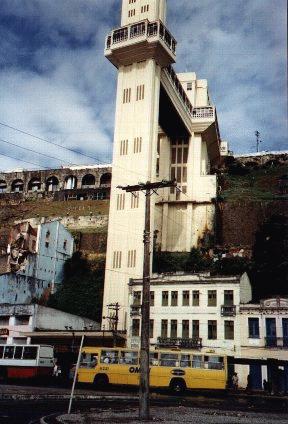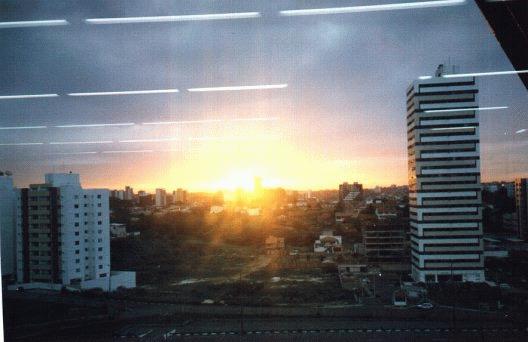

When I arrived at the Salvador Airport for the 5th Afro-Brazilian Congress he was there to greet me and it was my encounter with him which told much about how Africa lives in the soul of Brazil.
He shook my hand with the grip, grip, then snap of the fingers as
many West Africans do.
"Oh, so you've got some Senagalese friends?" I asked.
"What?" replied Andre. "No, I don't know any Africans."
"But the handshake," I said, "That's how the West Africans shake
hands."
"That's African?" asked Andre, "I've been shaking hands like that
with my friends all of my life. I always thought it was Brazilian."


It is a city where "Mothers and Fathers of the Saints", the priestesses and priests of the African Religion called "Candomble," are among the most respected citizens, wooed by white politicans and covered frequently by the local TV and newspaper media. They still perform their ceremonies in the Yoruba language of West Africa, a somewhat different version than is spoken in Nigeria today. But, as London University Religion Professor Peter Clarke said at the Congress, Bahia is in many ways more African than Africa is. He has lived in Nigeria and visits Salvador each year. He said of Nigerians "come here and they think this place is out of step with tradition in Nigeria, but in fact it's in step. It's conserved and preserved things that Nigerians no longer remember."
Clarke and other historians say from the style of drumming here to capoeira a fight-dance that came from Angola, but which Angolans no longer do, Bahia has preserved African culture.
"There is an important African dimension to everything that is going on here and it's sometimes described as if it's Brazilianized African, but it is in fact old African that has been lost in Africa," said the London professor.
